I am trying to decompile an executable for the 68000 processor into C code, replacing the original subroutines with C functions one by one.
The problem I faced is that I don't know how to make gcc use the calling convention that matches the one used in the original program. I need the parameters on the stack to be packed, not aligned.
Let's say we have the following function
int fun(char arg1, short arg2, int arg3) {
return arg1 + arg2 + arg3;
}
If we compile it with
gcc -m68000 -Os -fomit-frame-pointer -S source.c
we get the following output
fun:
move.b 7(%sp),%d0
ext.w %d0
move.w 10(%sp),%a0
lea (%a0,%d0.w),%a0
move.l %a0,%d0
add.l 12(%sp),%d0
rts
As we can see, the compiler assumed that parameters have addresses 7(%sp), 10(%sp) and 12(%sp):
but to work with the original program they need to have addresses 4(%sp), 5(%sp) and 7(%sp):
One possible solution is to write the function in the following way (the processor is big-endian):
int fun(int bytes4to7, int bytes8to11) {
char arg1 = bytes4to7>>24;
short arg2 = (bytes4to7>>8)&0xffff;
int arg3 = ((bytes4to7&0xff)<<24) | (bytes8to11>>8);
return arg1 + arg2 + arg3;
}
However, the code looks messy, and I was wondering: is there a way to both keep the code clean and achieve the desired result?
UPD: I made a mistake. The offsets I'm looking for are actually 5(%sp), 6(%sp) and 8(%sp) (the char-s should be aligned with the short-s, but the short-s and the int-s are still packed):
Hopefully, this doesn't change the essence of the question.
UPD 2: It turns out that the 68000 C Compiler by Sierra Systems gives the described offsets (as in UPD, with 2-byte alignment).
However, the question is about tweaking calling conventions in gcc (or perhaps another modern compiler).


